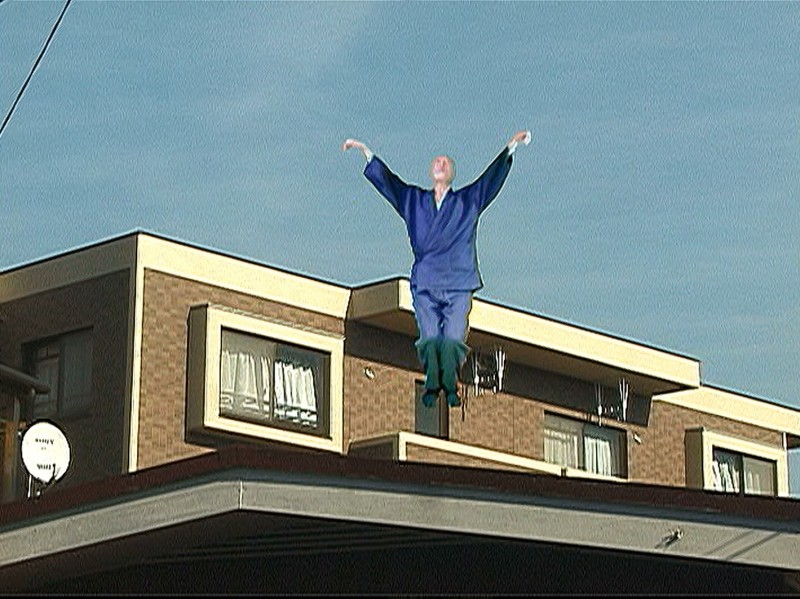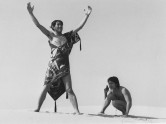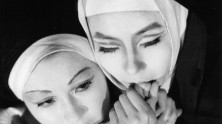
Under the Underground - The Visionary Cinema of Kanai Katsu
Virtually unknown in the West, radical cinema pioneer Katsu Kanai (b. 1936) remains one of the most vital and inventive filmmakers in the history of Japanese underground film. After studying film at the College of Art, Nihon University, Katsu worked briefly in the film industry, joining a major studio company and freelancing as a commercial cinematographer. In 1968, he formed his own production company, Kanai Katsumaru Production and began the "Smiling Milky Way Trilogy" which would include his three undisputed masterpieces, The Deserted Archipelago, Good-bye and The Kingdom. Featuring members of the Underground Theater and the Avant-garde Performance Group, The Deserted Archipelago depicts Kanai’s surrealistic and delusional and visions of postwar Japan. Mixing grotesque and eerily sexualized imagery with searing anti-establishment commentary in the midst of the charged political atmosphere of 1968, Kanai’s radical experiment had an incredible impact on stunned audiences. For his following work, Good-bye, he filmed in a Korea under martial law, confronting the problem of Japanese colonialism and challenging the history of Japanese ancestry—including his own. Portraying strange people who challenge the god Chronos, The Kingdom raised an important new theme for Kanai: the problem of Time. The scale for this film wildly exceeded the standard, low-budget framework of underground and independent films: Kanai shot on 35mm; traveled to Korea and the Galapagos Islands for his locations; and brought highly sophisticated cinematography skills to his chaotic stream of imagery.
While working at a news film production company for many years, Kanai created a series of “visual poems”—Dream Running (1987), Grasshopper’s One-Game Match (1988), and We Can Hear Joe's Poem (1989)—and in 1991 combined them into one work: The Stormy Times. This and the films that followed—Holy Theater and Super Documentary: The Avant-garde Senjutsu—reflect back upon his own filmmaking and personal history and pay poignant tribute to collaborators such as Motoharu Jonouchi, Atsushi Yamatoya and Jushin Sato who had since passed away. Dedicated to constant and intensive imaginative reinvention, Kanai continues to conjure entirely new, surprising visions with little resemblance to previous works. A thorough re-examination of the world of Katsu Kanai is long overdue, and the Harvard Film Archive is one of the few US venues to host this extraordinary retrospective with the legend himself in person. – Go Hirasawa, Meiji Gakuin University, Institute for Language and Culture












